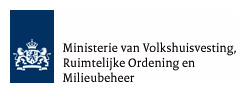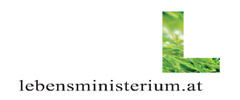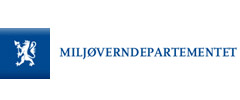Ukraine - Co-operation for Sustainable Rural Development
Involving citizens and local authorities in rural Ukraine in improvement of drinking water, sanitation and agriculture
12.05.2006 | Anne Barre
| Countries: | Ukraine |
| Donors: | Ministry of Foreign Affairs, European Cooperation, MATRA programme, The Netherlands |
| Partners: | MAMA-86 Poltava, MAMA-86 Kiev, MAMA-86 Yeremche and MAMA-86 Nishin, Fem-Consult, Technical University Hamburg-Harburg |
| Issues: | Water & Sanitation |
| Duration: | 11/2003 - 11/2006 |
Problems
- Low level of living standards and social and economic development of rural villages in Ukraine (e.g. no clean drinking water supply; no waste management for latrines, wastewater, animal waste; low level of employment both in the public and private sector; large-scale inefficient subsistence-farming and lack of knowledge on increasing income from sales of agricultural produce, etc)
- Lack of knowledge on the relationship between health and environmental pollution
- Lack of knowledge about affordable solutions, alternative techniques, to solve pollution problems
Project goal
Empower key target groups of rural citizens in 3 rural communities, as well as their local authorities to play an effective and stimulating role in societal transformation (a) by carrying out practical replicable improvement projects (b) in the areas of water, sanitation and agriculture, which have a direct benefit for the economic and health situation (c) of the 3 rural communities, and strengthen participation of women in this process.
Project results
- The citizens and local authorities of the three rural communities were empowered to play a more effective and stimulating role in social transformation:
- Citizens have organised themselves in project committees, and they actively participated in trainings on water protection, hygiene and sanitation, organic agriculture and composting
- The 350 pupils of the schools of Gozhuly, Bobryk and Vorokhta conducted well water monitoring.They measured nitrate levels in their drinking water wells throughout 1-2 years, testing in total 250 wells, and found that majority of the wells were highly polluted with nitrates.
- The local authorities of Vertijivka have contributed in-kind with labour to build a drinking water well for the kindergarten of Vertijivka
- The local authorities of Gozhuly have contributed in-kind with labour to renovate the public well
- The local authorities of Vorothka and Yaremche actively worked with local citizens on finding the most efficient way to improve the drinking water quality for a large part of the inhabitants; and contributed much more money than the planned 4.300 Euros.
- Practical replicable improvement projects:
- In the area of water:
- Due to a newly installed 265 m long pipe-branch of the Central Water Supply System, 100 people in Vorokhta have now access to running water;
- In the three project areas, 5 public drinking water wells are cleaned, providing better quality drinking water to approximately 400 people;
- Due to the restoration of one public well in Gozhuly, 96 families have now access to safe drinking water;
- For Bobryk’s school, a public well was restored and now serves the canteen.
- A well with a filtration unit was installed for the kindergarten of Vertijivka;
- 41 water meters were installed for central water supply users in Vorokhta.
- In the area of sanitation:
- 2 dry urine diverting school toilet facilities were built, improving the health and quality of life of 260 school pupils and teachers.
- 6 household ecosan toilets were built improving the health and quality of life of 33 people
- In the area of agriculture:
- There were new, more suitable, potato strains introduced to subsistence farmers of Bobryk;
- An Organic Agriculture Information Center was set up in Vertijivka, which is visited by local citizens regularly;
- A local consultant trained farmers continuously on better agricultural practices integrating local knowledge and experiences;
- 3 Gozhuly farmers became members of the Ukrainian Federation of Organic Agriculture Movement;
- A demonstration waste composting site was built in Gozhuly.
- Direct benefits for the economic and health situation of the 3 rural communities:
- In Vorokhta, the health conditions of 31 people were improved by the construction of an ecosan toilet and hand washing facilities;
- In Vorokhta 100 people have obtained safe drinking water, which has a positive effect on their health;
- In Bobryk and Gozhuly, the health of 200 children improved greatly, as they now have clean toilets and hand washing facilities, and no longer need to go outside by freezing temperatures in winter to go to the toilet;
- 100 children attending Vertijivka’s kindergarten have obtained clean drinking water;
- In Vertijivka and Bobryk, the project particularly led to improvements in the potato cultivation, which is the main source of food and income for the, very poor, subsistence farmers.
- Women’s participation has been increased:
- In all 3 project areas, women have constituted half or more of the project committees and have taken a very active part in the project implementation and cooperation with the local authorities.
- The director of the school of Gozhuly became actively involved in the project. Due to this, she became a renowned community member and was elected as a village deputy.
Through awareness raising activities approximately 1,500 people were reached directly and approximately 11,500 people indirectly and informed on water and sanitation related issues.
In the framework of the project 5 publications, 2 booklets, over 40 leaflets, 3 posters and two films were made.
This first experience with ecosan toilets in Ukraine was shared during the IV World Water Forum in Mexico, the Almaty+5 Ministerial Meetings in Armenia, the Women for Water Conference in The Netherlands, the World Water Week in Sweden and II International Dry Toilet Conference in Finland.
An extensive international exchange of know-how took place during the project. The water service representatives from the project area visited the Munich municipality and Munich water and sanitation facilities.
In addition local farmers visited a workshop on organic agriculture in Germany and local children presented the results of the well water monitoring program at the Youth Water Parliament in Moldova.
The project team contributed to inclusion of rural areas into Ukrainian National Program on Drinking Water. Moreover it presented the results and initiated a discussion on national level during a seminar held within the framework of IV International Water Forum “AQUA Ukraine - 2006”.
Project reports
- Gozhuli Suburban village, Poltava oblast, (Center of Ukraine) (Detailed Report)
- Bobryk and Vertijivka villages, Chernihiv oblast (Northern Ukraine) (Detailed Report)
- Vorohta town, Ivano-Frankist Oblast (Western Ukraine) (Detailed Report)
WECF Contact
Annemarie Mohr: annemarie.mohr(at)wecf.eu
Margriet Samwel: margriet.samwel(at)wecf.eu
WECF Links
The summary report on the first project period
Related News
Congratulations Sascha!
Named thirty-third most influential sustainability fighter in the Netherlands
08.10.2018
Priority Actions to Increase Access to Climate Finance for Non-State Actors
SB48 side event: 7 May 2018 at 16:45 CEST in room 181, UNFCCC, Bonn
03.05.2018
Call for Action on Gender and a Pollution Free Planet
UNEA-3 meeting of Women Ministers and Leaders presents Call for Action
09.01.2018
PRESS CONFERENCE: Gender Just Climate Solutions
Watch the press conference hosted today during UNFCCC's Gender Day at the climate negotiations in Bonn (COP23)
14.11.2017
Icons of sustainability: climate change resistance as an art form
Bonn, Gender Just Climate Solutions opening ceremony, coordinated by WECF on behalf of the Women & Gender Constituency's
11.11.2017
UNEP’s election results are in: Sascha is now regional representative
We are incredibly glad to inform you that our Executive Director Sascha Gabizon has been elected to be UNEP's regional representative for civil society in Europe. Thank you, we couldn't have made it without your incredible support and votes!
11.10.2017
WECF at 6th Meeting of the Parties to the Aarhus Convention in Budva, Montenegro (11 to 14 September 2017)
WECF, as part of the NGO coalition under the European ECOForum, participated in the 6th MOP of the Aarhus Convention that was hosted by Montenegro in Budva.
20.09.2017
UNECE meeting on Equitable Access to Water and Sanitation
Bistra Mihaylova (WECF) took part in the 4th UNECE meeting (13 -14 Sep) of the Expert Group on Equitable Access to Water and Sanitation in Budapest, Hungary.
15.09.2017
Moving Beyond Tokenism of Youth
Our Eco-Forum* youth delegates Mareike Peschau and Nikolina Stålhand report back on their experiences in Ostrava earlier this summer where they participated in WHO’s regional (UNECE) conference on Environment and Health.
21.08.2017
C20 summit "The World We Want", 18 and 19 June 2017, Hamburg, Germany
In preparation for the G20 summit in Hamburg from 7 to 8 July, representatives of civil society attended the "Civil 20" or C20 summit at HafenCity University, Hamburg.
19.06.2017









































